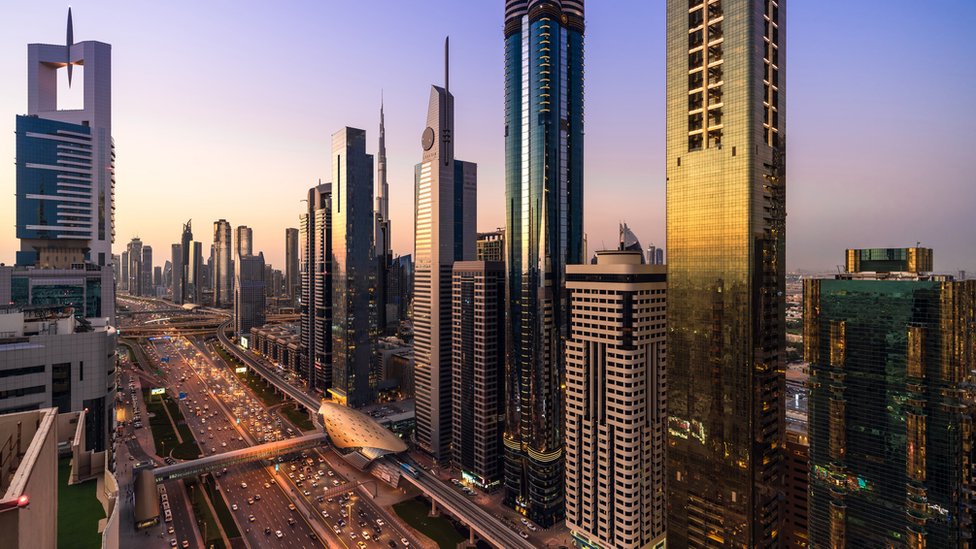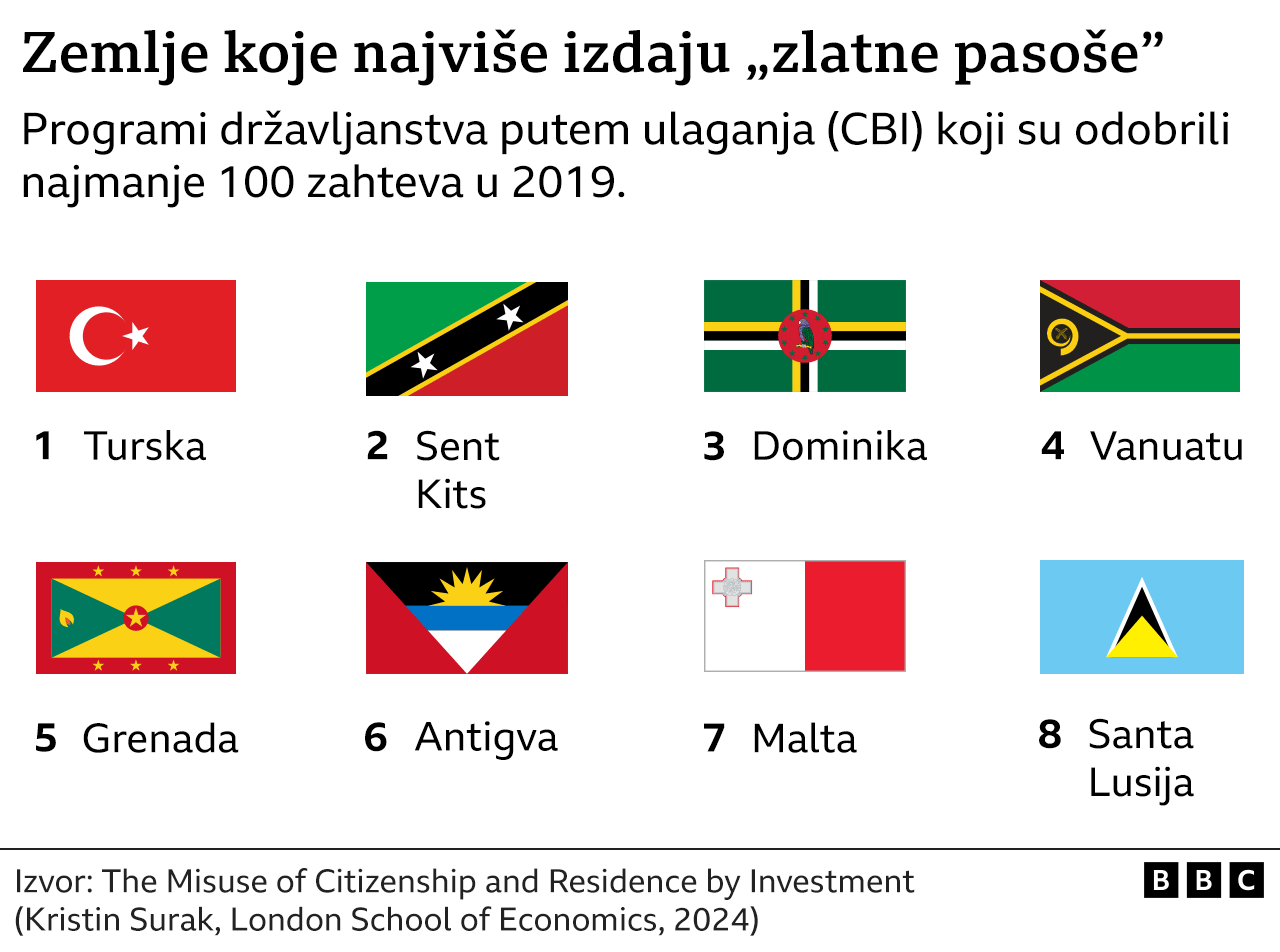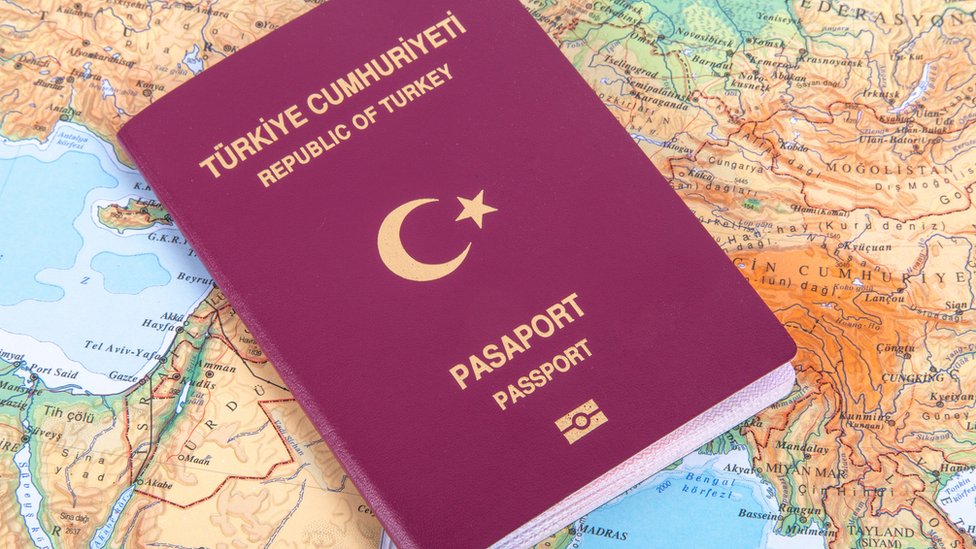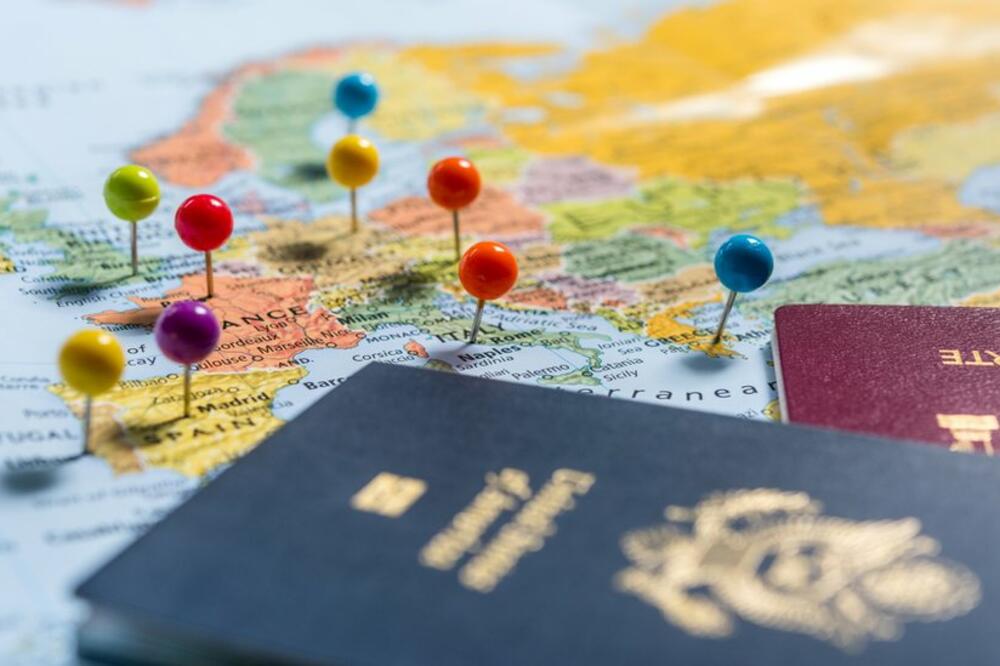Spain intends to abolish the so-called "golden visa" program, which allows citizens of countries that are not members of the European Union (EU) to obtain residence under an accelerated procedure in exchange for large financial investments.
More and more countries are planning to do the same.
Pedro Sánchez, Spain's prime minister, said that with this move he was trying to "guarantee that housing is a right and not just an object of speculation".
"The housing market was under enormous pressure, and it was impossible for people who live and work in places where demand is high to find an apartment at an affordable price," he added.
- Cyprus abolished the "golden passport" - undercover journalists discovered fraud
- Why rich people buy Maltese passports
- 13 amazing facts about passports
Many investors see this program as an opportunity to start a new life in another country, or to avoid political, social or economic risks in the countries they come from.
But anti-corruption activists and politicians warn of criminals who abuse such programs for their own interests.
They also point out that real estate prices are rising in countries that offer such programs, which makes housing unaffordable for the local population.
What are golden visas and passports?
The golden visa program provides an opportunity for wealthy foreign nationals to live and work in another country in exchange for large investments.
In order to obtain a golden visa in Panama, it is necessary to invest around 93.700 euros in real estate, and in Luxembourg up to 20 million euros in the form of a deposit in a financial institution based in that country.
There are also golden passport programs, through which rich people acquire all the rights and freedoms of citizens of a certain country, including the right to work and the right to vote.
Which countries are most in demand?

Around 60 countries offer golden visas, says PhD Kristin Surak, associate professor of political sociology at the London School of Economics and author of the book Golden Passport: Global Mobility for Millionaires.
About 20 countries grant citizenship based on the legal provision on investment, and half receive more than 100 requests a year, she adds.
"Turkey is the biggest seller of citizenships," says Surak.
Requests for the golden Turkish passport make up about half of the annual sales of citizenship in the world, Dr. Surak's research shows.
She says that residency-for-investment programs are mostly offered in the south, with Malaysia and the United Arab Emirates (UAE) being particularly sought-after destinations.
Saint Kitts, the Dominican Republic, Vanuatu, Grenada, Antigua and Malta are also among the countries that issue the largest number of golden passports.

The European Union (EU) is one of the most desirable destinations for golden visa seekers, because the right to live and work in all EU member states allows visa-free travel within the Schengen area.
In 2020, 14 EU countries offered golden visas.
Of the total number of approved visas in the EU, more than 70 percent were issued by Greece, Latvia, Portugal, and Spain.
But many of these countries have taken steps to limit the program.
In 2022, the UK government scrapped a program that allowed wealthy foreign nationals to settle if they brought capital.
The following year, Ireland abolished the golden visa, while Portugal introduced changes and no longer allows residence for the purchase of property, but requires the transfer of funds to funds and investment in research activities.
Why are golden visas and passports demanded?
Golden visas and passports are popular among wealthy people looking for better business opportunities, lifestyle, education or health services.
"Due to the uncertainty in today's world, the need for a second country residence or passport has never been greater," Lizzie Edwards, marketing manager at UK-based La vida golden visas, told the BBC's Turkish service last year.
"Incentives for investors are different, but the typical reasons people apply for these visas are of a security nature, the possibility of visa-free travel to several countries, as well as various other benefits, including education and business opportunities," he adds.
How to get a golden visa or passport?
Regulations vary by country and type of investment.
For example, Turkey offers a golden passport to foreigners who buy real estate worth around 375.000 euros or more.

Some other countries like Luxembourg offer several options for obtaining a golden visa, from investing at least €500.000 in an existing Luxembourg company to depositing €20 million in a financial institution.
Many countries accept monetary donations or investments in research and development activities.
One of the most important reasons that countries offer such programs is to enable the transfer of capital and stimulate economic growth.
Investments based on golden visas issued from 2013 to 2019 accounted for 14,4 percent of foreign direct investment in Portugal, according to a research paper by Dr. Kristin Surak and Yusuke Suzuki, published in Journal of Ethnic and Migration Studies.
In Latvia, that percentage was 12,2, and in Greece it was more than seven percent.
Why are these programs controversial?
Opponents of these programs warn of two main problems, namely corruption and the housing crisis in the countries that offer them.
Transparency International (Transparency International), an international non-governmental organization for the fight against corruption, which is present in more than 100 countries in the world, warns that these programs in the EU are not implemented "for real investments or migration, but to serve corrupt activities".
Eka Rostomashvili, an activist of this organization, says that countries that offer such programs conduct thorough analyses, but that the systems do not always function as intended.
"Cases have been published of people being prosecuted by the authorities in their home countries who applied for golden visas or passports shortly before or after their involvement in corruption or embezzlement became known.
"Obviously they see it as a kind of insurance policy for actions they have taken that they should be held accountable for in their home countries," she told the BBC.
Various EU bodies have also criticized such programs.
The European Parliament's Committee on Civil Liberties, Justice and Home Affairs called for a ban on golden passports in 2022 and asked third countries whose citizens can travel to the EU visa-free to end their golden passport programs.
- "Border policemen are understanding": What is a 'visaran' and why is it used by a large number of Russians in Serbia
- Work in Germany: What the immigration law reforms mean for Serbian workers
Surak says that although such programs enable money laundering, "there are also easier and cheaper ways".
"The same can be done with a student visa, and probably much cheaper.
"Also, on the basis of a business visa. It's not just a problem with these programs," he points out.
In the Report on Organized Crime and Corruption, published in October 2023, it is stated that a former Libyan colonel accused of war crimes and a Turkish businessman sentenced to prison in the country of origin purchased a Dominican Republic passport through these programs.
And in 2023, a check of golden visas issued in Great Britain requested by the Home Office revealed that "for a small number of foreign investors there is a potentially high risk" of being linked to corruption or organized crime.
Another main problem pointed out by opponents of these programs is the high cost of housing.
Although countries offer different investment opportunities, most visa or passport seekers buy real estate, driving up their prices.
But it has limited impact in most countries, research by Dr Kristin Surak shows.
For example, Spain approves about 2.000 requests per year, and in a country with 48 million inhabitants, 2.000 real estate transactions is a negligible number, she points out.
But there are the most desirable places, so certain cities and parts of the city where foreigners buy the most real estate are particularly affected.
One example is Antalya, a city on the southern coast of Turkey.
Antalya, which is traditionally a popular resort for Russian and Ukrainian tourists, became a permanent refuge for many after the war in Ukraine began.
Locals complain that the increased demand for real estate has led to rising prices.
Follow us on Facebook, Twitter, Instagram, YouTube i Viber. If you have a topic proposal for us, contact us at bbcnasrpskom@bbc.co.uk
Bonus video:




